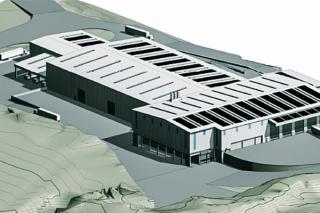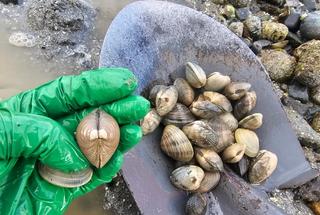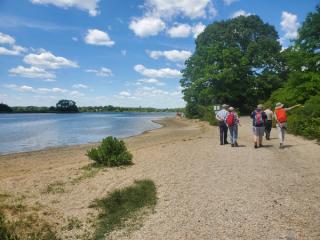
Marine PFAS Sampling Program to Support Human Health and Ecological Risk Assessment
- Client Name
- Confidential
- Location
- British Columbia, Canada

Challenge
The client required a targeted marine-based PFAS sampling program to support a Human Health and Ecological Risk Assessment (HHERA) and guide risk-based site management decisions. The work focused on identifying specific PFAS and tissue types that required further assessment in intertidal areas located downstream of the source site. Complicating factors included multiple potential off-site PFAS contributors, such as municipal wastewater plants and industrial facilities, as well as the need for regulatory and First Nation input. The field program required extensive logistical planning to conduct work in environments affected by tides and weather, while meeting permitting requirements.
Solution
SLR designed and executed a comprehensive sampling program that included surface water, porewater, sediment, and marine organisms such as algae, clams, oysters, crabs, limpets, worms, and fish. Reference areas were selected to establish conditions unrelated to the source site.
Key program elements included:
- Careful planning and coordination to address field logistics and meet regulatory requirements.
- Collaboration with First Nation governments and regulators to support clear communication, align project objectives, and streamline program delivery.
- A data-driven approach to identify PFAS and tissue types most relevant to human and ecological health.
- Critical review and validation of a large, complex dataset to inform priority contaminants by media type.
Our team leveraged extensive experience with complex marine investigations, multidisciplinary collaboration, and evolving PFAS science to successfully deliver the project.
Impact
The program provided high-quality data tailored to multiple audiences, from technical specialists to regulators and First Nation partners. Results helped identify key contaminants and exposure pathways, informing the client鈥檚 risk-based site management decisions. By combining a well-designed program with deep technical experience and a collaborative approach, SLR helped guide a more informed and effective strategy for managing PFAS in a sensitive marine environment.

